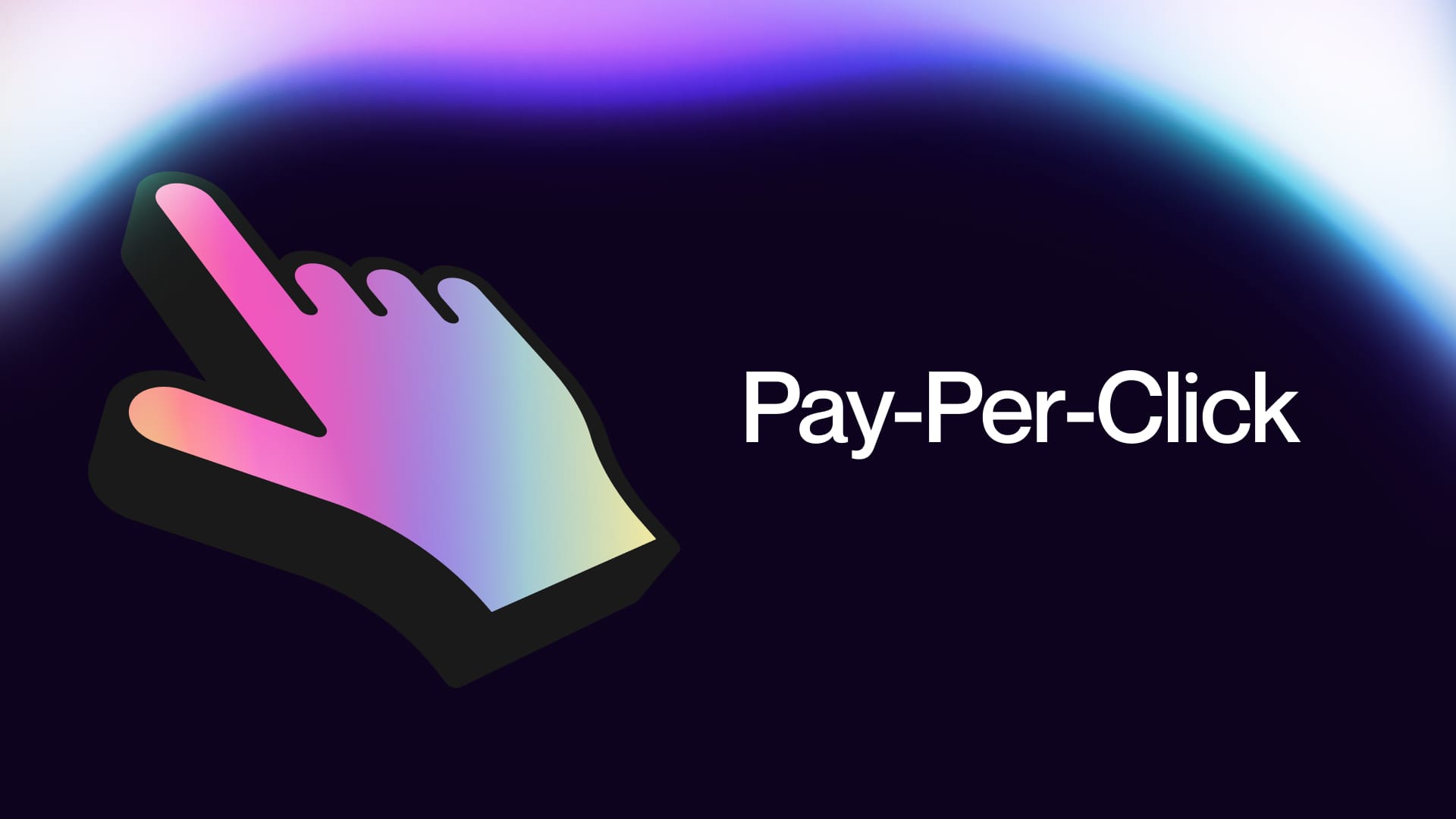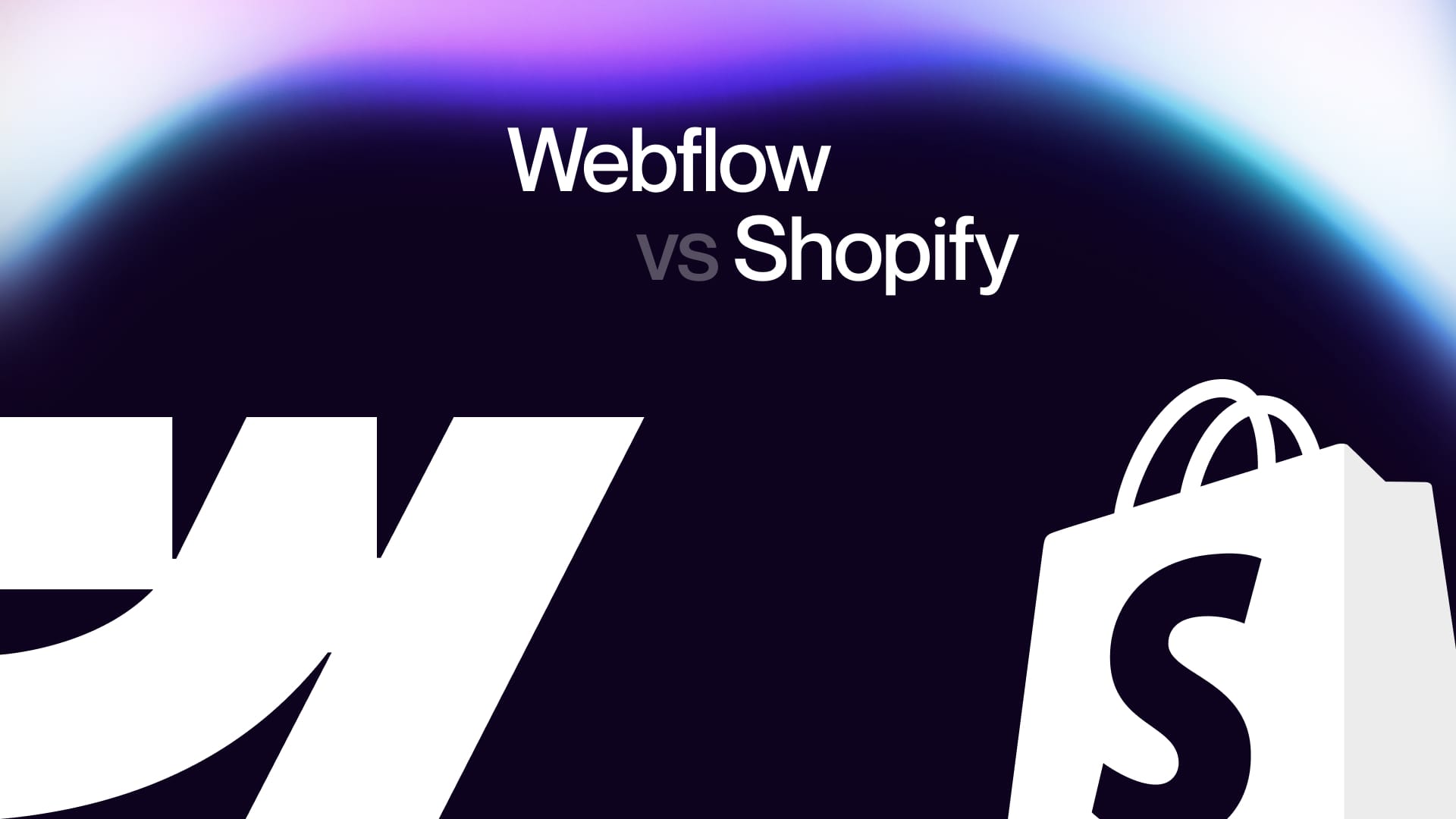You’ve probably heard a lot about SEO vs PPC over the years. But which one is actually better for your business?
If you find yourself grappling to get the attention and traffic your business needs, you are not alone.
Many business owners are plagued with the same issues around acquiring customers, and it is not only in the beginning or start-up phase of an organization.
Even well-established businesses go through highs and lows when it comes to gaining customers. Trying to balance the budget, and keep up with ever-changing strategies to produce measurable results for a marketing campaign is no walk in the park.
It can take months or even years to see results from SEO, but when it does pay off, it can provide an ongoing source of traffic and leads for your business.
PPC, on the other hand, is a much more immediate way to get results.
You can start seeing results from your PPC campaigns almost immediately, and you can scale up your budget to get even more traffic. So which one should you choose for your business?
1. Should You Choose PPC or SEO?
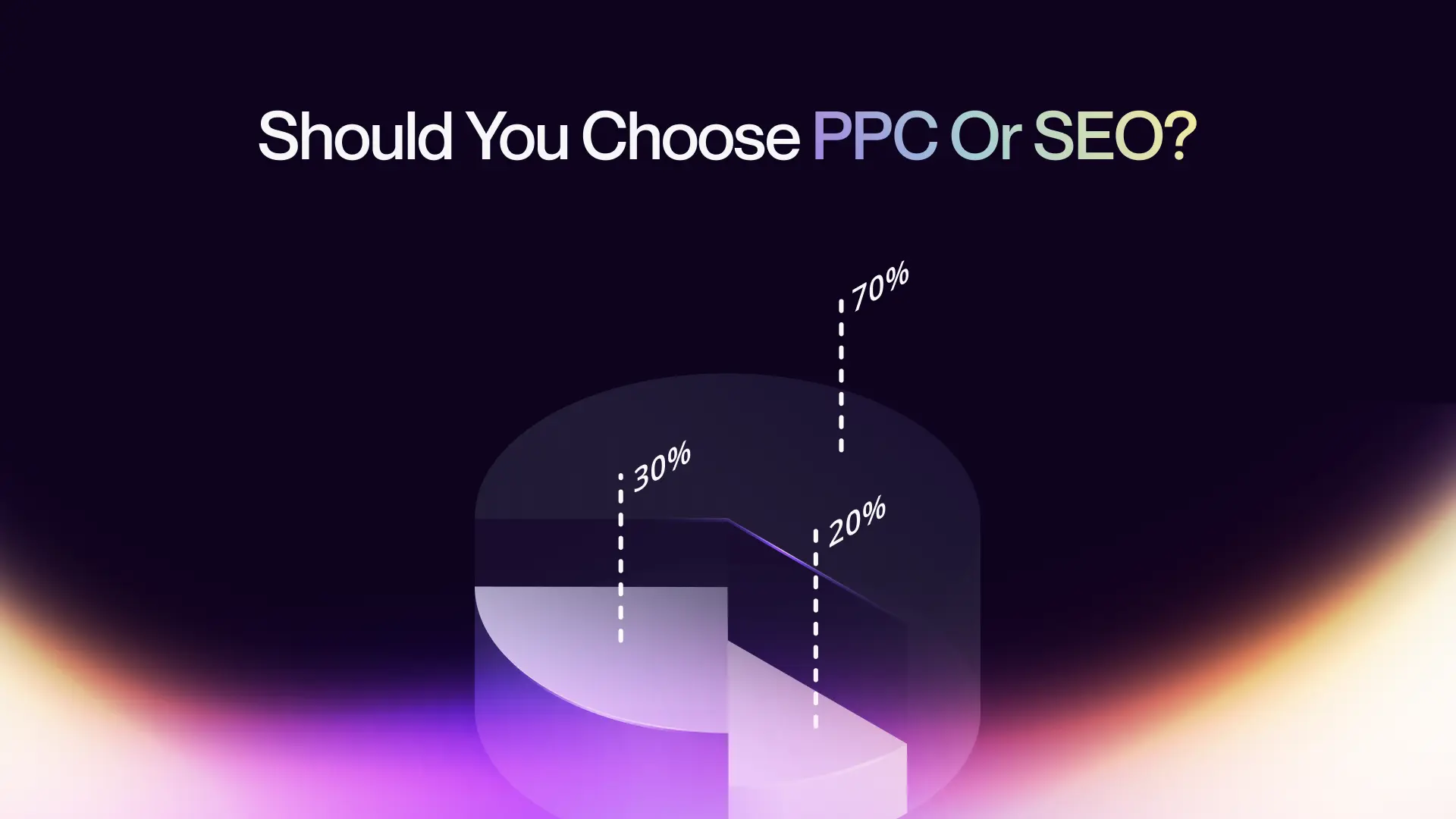
The answer to this question really depends on your business goals, objectives, and budget. If you need immediate results and have the budget to support a PPC campaign, then that may be the best route for you.
However, if you are looking for a long-term solution that will provide ongoing traffic and leads, then SEO is probably a better option.
In order to figure out which one is the best choice for your business, you first need to know what exactly are SEO and PPC, as well as fully understand the difference between PPC vs SEO.
2. What is SEO?
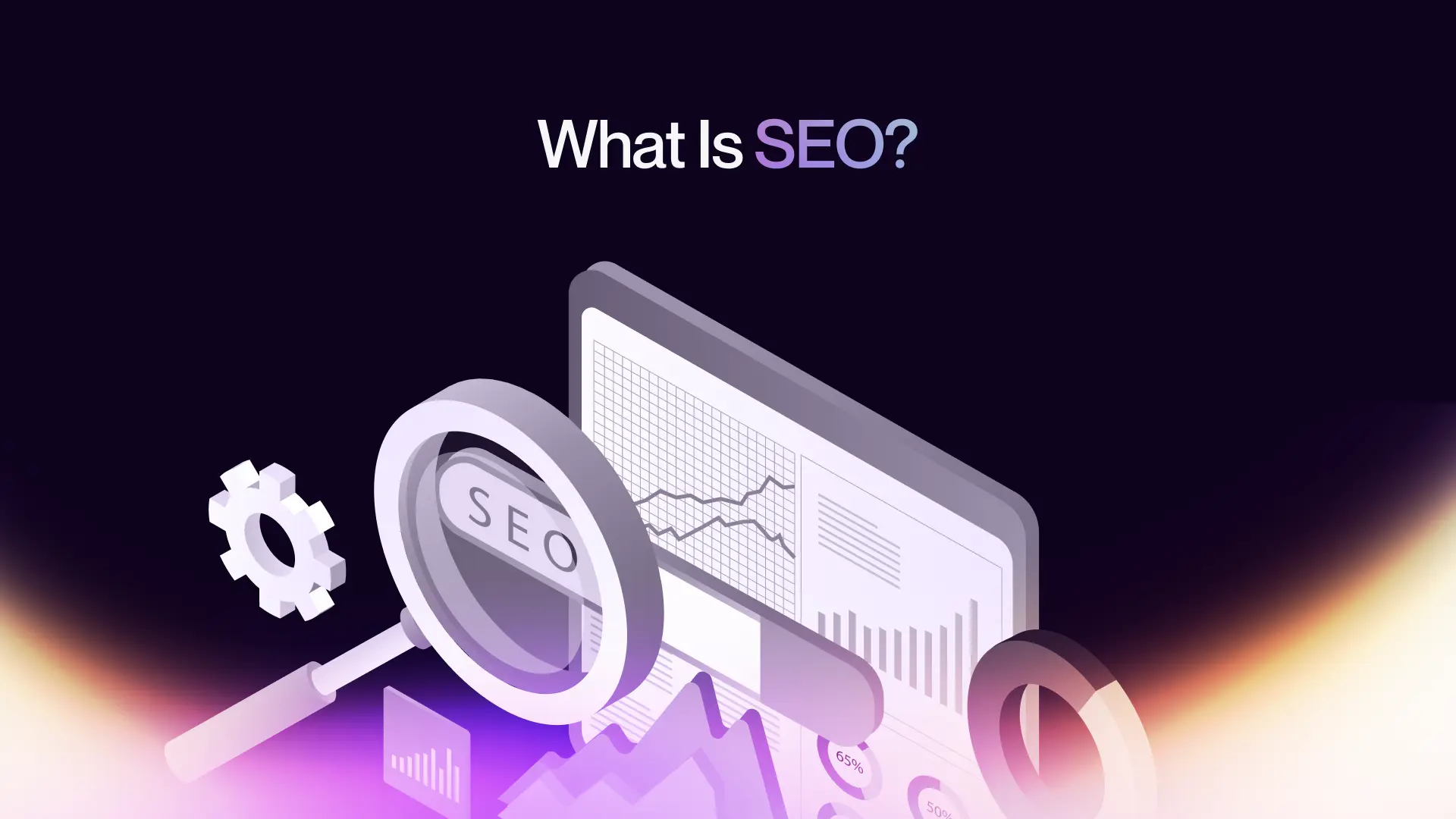
SEO, or Search Engine Optimization, is the process of optimizing a website for Google’s search engine with the goal of earning higher web traffic levels and improving the visibility of the site.
SEO requires both on-page (what you put on your website) and off-page (how people interact with your website) tactics to be effective.
When SEO is done well a business will rank high in the world’s top search engines such as Google, Bing, Baidu, and Yahoo.
Some common on-page SEO tactics include:
Creating keyword-rich titles and descriptions
- Using header tags
- Optimizing website images and videos
- Including internal links
- Crafting original content
- Publishing blog posts
Common off-page SEO tactics include:
- Building backlinks from other websites
- Social media engagement
- Local directory listings
3. What is PPC?
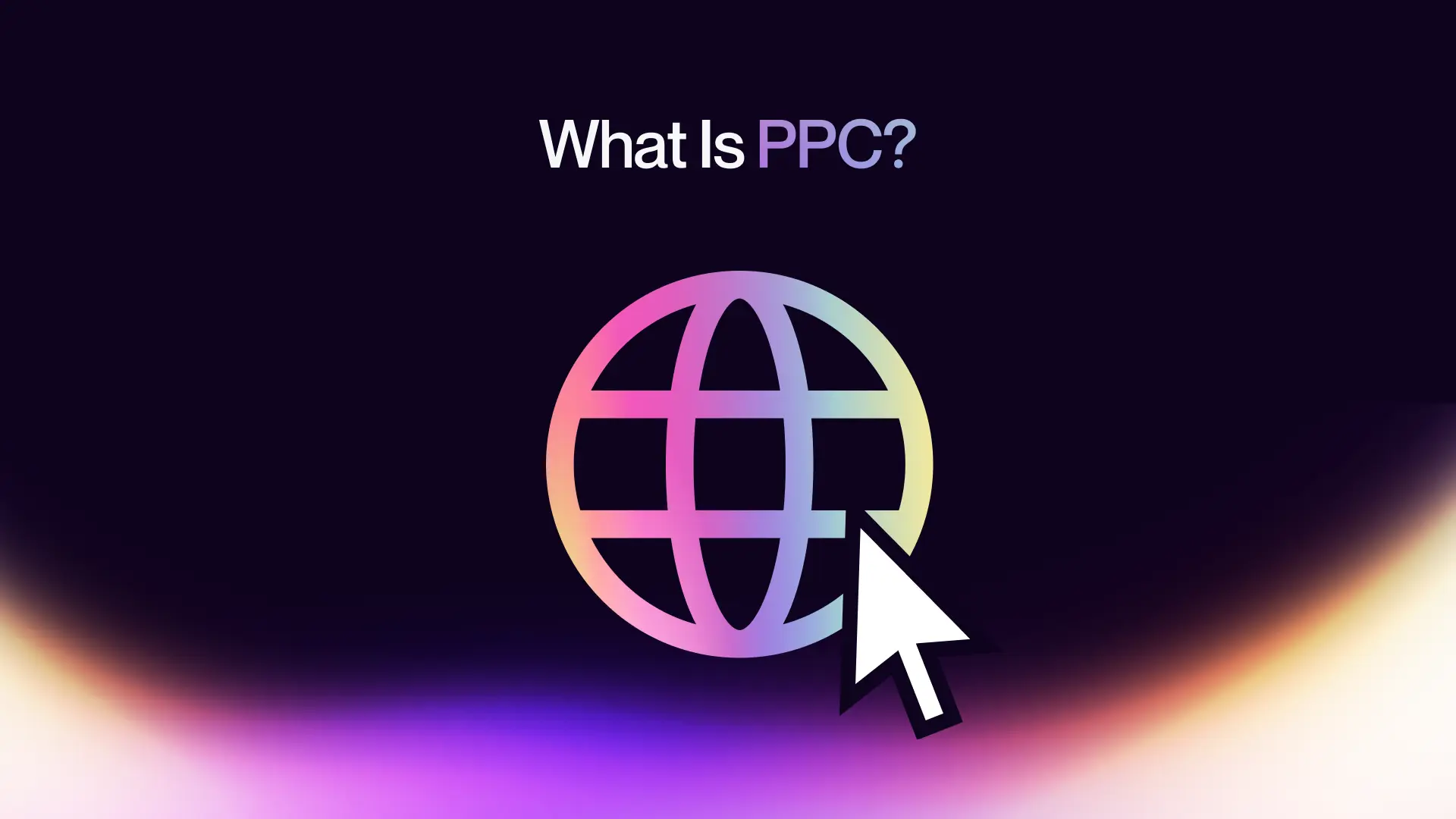
PPC, or Pay-Per-Click, is a type of advertising where businesses can pay to have their ads displayed on the first page of Google’s search engine results. When a user clicks on one of these ads, the business will then pay Google a predetermined amount. The most common type of PPC is Google Ads, which allows businesses to bid on certain keywords in order to have their ad appear when someone searches for that keyword.
Paid ads in search results are the most popular form of PPC, display advertising such as banner ads comes in second.
4. The Components of SEO
SEO or search engine optimization involves having content on your business’s website that increases your visibility, relevance, and credibility.
When a search engine like Google crawls your website, it will recognize and understand the content on your website and will decide whether your website is relevant and trustworthy with respect to the query made by the user.
Let’s take a look at some of the most important elements of The SEO Periodic Table.
On-page Optimization
The first and most important element of SEO is on-page optimization.
This refers to all the content that is on your website, including the code, design, layout, and text. It is important to have keyword-rich titles and descriptions, as well as well-optimized images and videos.
In addition, your website should be easy to navigate and have a clean and user-friendly design.
On-page Optimization includes:
- H1 tags including the keyword you want to rank for
- Meta descriptions and title tags with relevant keywords at the start
- Alt text behind all images that are descriptive and include your keyword
- Natural inclusion of keywords in your content
- Titles - H2, H3, H4, that include your keyword
Off-page Optimization
Off-page optimization is just as important as on-page optimization, if not more so.
This refers to all the activity that takes place off of your website that can impact your SEO.
This includes things like social media engagement, backlinks, and local directory listings.
Search engines such as Google and Bing use backlinks to verify the quality of a business’s website content. Higher-quality backlinks rank sites higher on SERPs.
Off-page Optimization includes:
- Building Backlinks
- Social media marketing to share content on a business’s social media channels
- Guest blogging
- Blogging
- Business directories in order to prove authority and authenticity within reviews, posts, etc.
- Linked/unlinked brand mentions in articles, guest posts, press releases, and reviews.
- Internal linking on the website guides users to navigate your website.
Content
One of the most important elements of SEO is content.
Your website’s content needs to be original, keyword-rich, and informative. In addition, your content should be updated on a regular basis in order to keep your website fresh and relevant.
5. The Components of PPC
PPC or pay-per-click marketing is a type of online advertising where advertisers pay a fee or costs when a user clicks their ads.
Advertisers bid on the value of a click in association with the keywords, audience, and platforms.
The platforms may be a search engine such as Google, Bing, or Yahoo, or a social media site such as Facebook or LinkedIn.
PPC can be used to achieve a variety of business objectives, such as increasing website traffic, generating leads, and boosting sales.
PPC Components:
Keywords - the words or phrases that users enter into a search engine
Ads - the text or image ads that appear in search results
Bids - the amount you are willing to pay for a click on your ad
Quality Score - a measure of how relevant and useful your ad, keyword, and landing page are to the user
Landing Page - the page on your website that users are taken to after clicking on your ad
Conversions - the number of times a user completes a desired action on your website, such as making a purchase or filling out a form
PPC Management - PPC management is the process of planning, executing, and optimizing a pay-per-click marketing campaign. PPC management includes keyword research, ad creation, bid management, and landing page optimization. Keyword research is the process of finding the right keywords to target in your PPC campaign.
Ad creation involves writing compelling ad copy that includes the target keyword.
Bid management is the process of setting and managing your bids on the different keywords in your campaign.
6. The Basic Difference between PPC and SEO
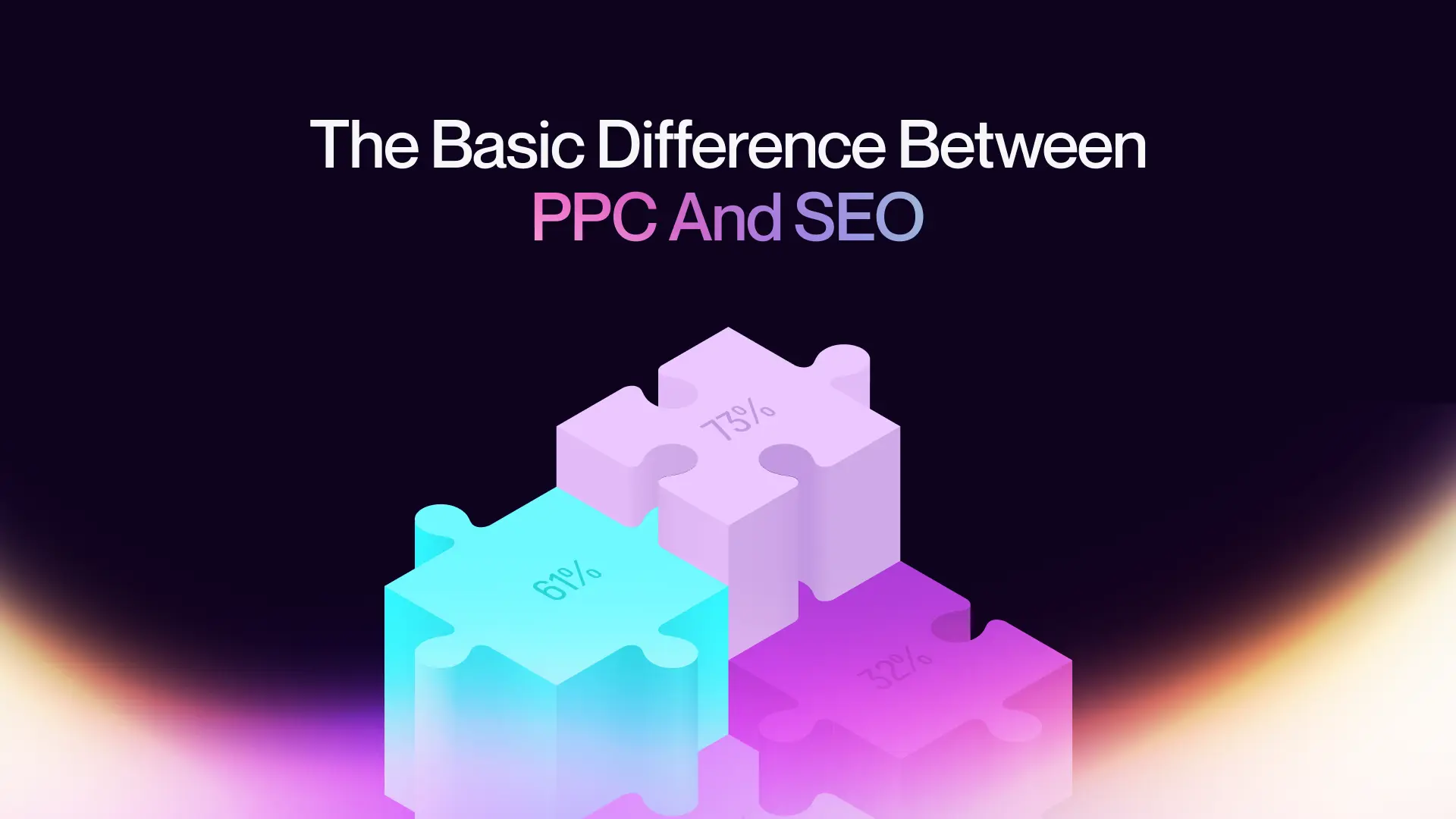
The difference between SEO and PPC is that with the PPC method, you are paying for users to click on search engines or social media ads such as Facebook ads that take the user directly to your website.
Alternatively, SEO is all about creating content such as blogs or backlinks that raise your SERP ranking, the higher the quality of the content the better your chance of organically ranking to the top spot on Google, Bing, etc.
PPC gets fast and predictable fast, yet the return on investment is moderate averaging from 500% to 1000% return on ad spend. SEO gets gradual results that can be unpredictable to a degree, but the return on investment is much better.
7. SEO vs PPC: What About Conversions?
The main difference between SEO and PPC is that SEO is about getting organic or natural traffic to your website, while PPC is about buying traffic through ads.
But what about conversions?
Conversions are the number of times a user completes a desired action on your website, such as making a purchase or filling out a form. Both SEO and PPC can be used to increase conversions.
If your PPC ads are specifically targeted and optimized for conversions, then you can expect a higher conversion rate than if you were to rely on SEO alone.
However, if your SEO is strong and your website is optimized for conversion, then you can expect a higher conversion rate from organic traffic.
Ultimately, the best approach is to use both SEO and PPC in order to maximize your chances of conversion.
By using both methods, you can ensure that your website is getting the most traffic possible and that this traffic is high-quality and relevant to your product or service.
For a quick buck, PPC will get the conversions you need if the ads have highly optimized keywords they will get you more conversions but will cost more.
And lastly, if you want a long-term strategy that will get more and more conversions over time, then focus on SEO to get organic traffic that converts well.
8. SEO vs PPC: Which One is Better For My Business?
There is no easy answer when it comes to
choosing between SEO and PPC. The best approach is to use
both methods in order to get the most traffic and
conversions.
PPC is a great way to get quick results and it can be very effective if your ads are well-optimized.
However, SEO is a more sustainable long-term strategy that will continue to bring traffic and conversions over time.
If you have the budget, then using both methods is the best approach. If you are on a tight budget, then you will need to decide which method is more important for your business.
If you are selling a product or service that people are searching for online, then SEO should be your priority.
If you are selling a unique product or service that people are not likely to search for online, then PPC may be a better option.
If you have an eCommerce website, looking to compete with eCommerce heavyweights like Amazon or Alibaba, your website will struggle to outrank within organic search results.
PPC paid ads would be a better option in this case because they will spark a fire in your brand awareness campaign.
9. Getting You The Results You Need Every Single Time
Here at Imbassy, we offer both SEO and PPC services that are designed to get you the results you need.
Both SEO & PPC need finesse, they can be taught via an online course and you are smart enough to learn how to execute a strategy, but it takes time, effort, and money.
SEO is a long-drawn process that requires a lot of time and effort to show results.
PPC is an instant way to get your website in front of its target audience but can be expensive if not done right.
Both methods have their pros and cons, and both are important for any business that wants to succeed online.
At Imbassy, we offer services that are designed to help you succeed with both SEO and PPC.
Our team of experts will work with you to create a customized plan that fits your budget and your goals.
Contact Us today to learn more about how we can help you grow your business.
Final Thoughts
You know for a fact that visibility is king.
Your business’s website might as well not exist if it lacks the ability to draw eyeballs to your offers on a daily basis.
If you choose PPC you better have the funds because you will be paying for it and in order to be successful, it needs a good-sized budget.
SEO should be your primary method, it is proven to really amplify a business’s conversion rates when page rankings kick in. If you have a product launch, promo, or event, this is when you can leverage PPC ads.
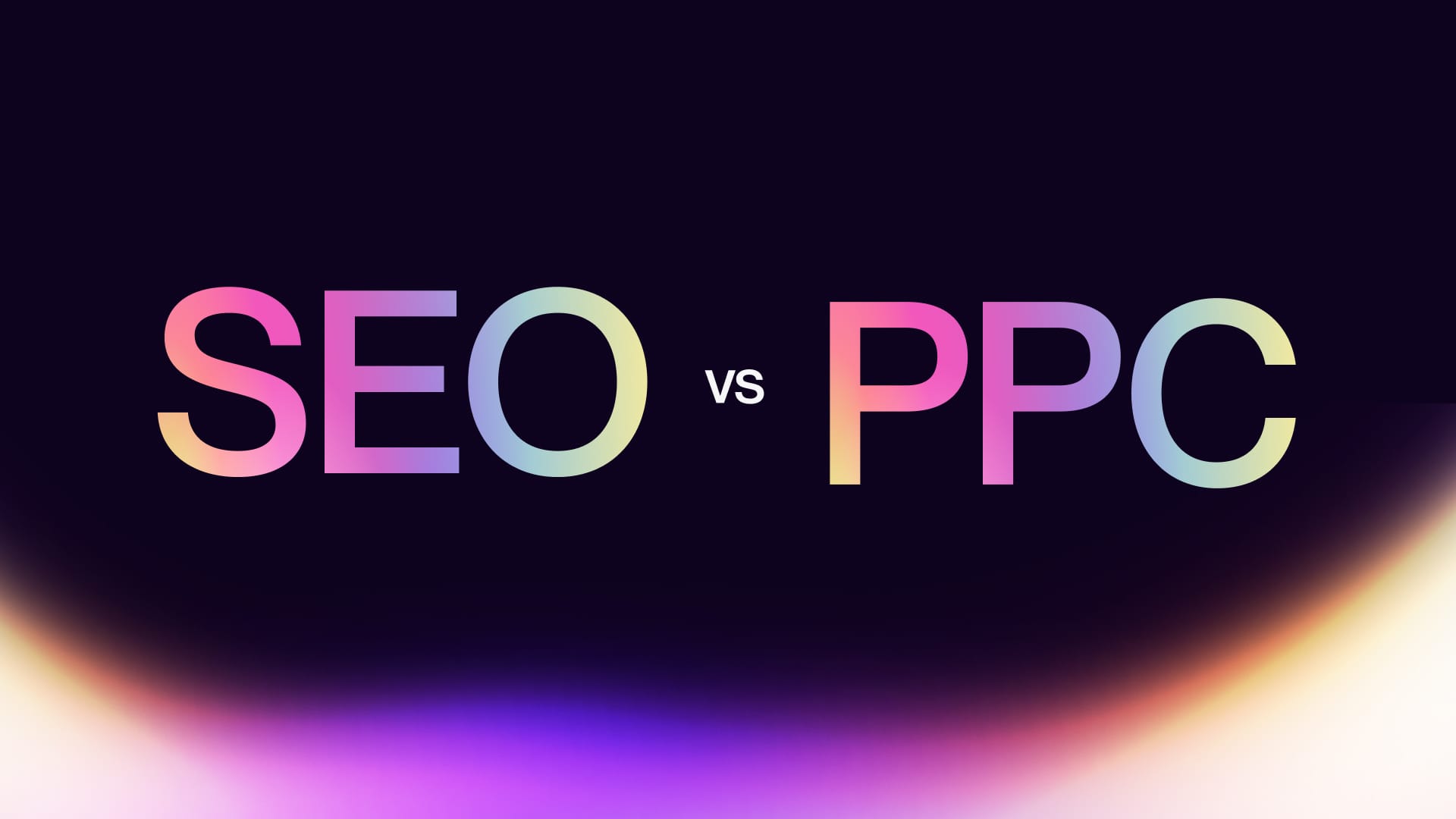


.jpg)
